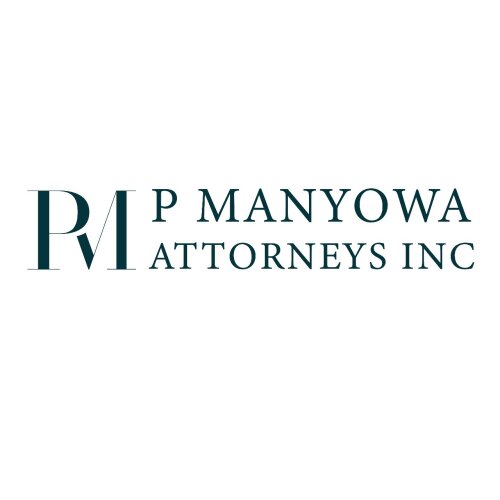Best Elder Abuse Law Lawyers in Polokwane
Share your needs with us, get contacted by law firms.
Free. Takes 2 min.
List of the best lawyers in Polokwane, South Africa
About Elder Abuse Law in Polokwane, South Africa
Elder abuse law in Polokwane, South Africa, is designed to protect the elderly from physical, emotional, and financial abuse, as well as neglect. These laws aim to ensure the well-being and safety of older individuals who may be vulnerable due to age-related issues such as diminished mental or physical capacity. Elder abuse can occur in various settings, such as homes, care facilities, and within the community, and the law provides mechanisms for addressing and preventing such abuse. In South Africa, elder abuse is taken seriously, with significant emphasis placed on the protection of human rights and dignity of the elderly.
Why You May Need a Lawyer
Engaging a lawyer in elder abuse cases can be essential for several reasons:
- Complex Legal Framework: Navigating the legal framework related to elder abuse can be complex and confusing, requiring an expert understanding of specific statutes and regulations.
- Advocacy and Representation: A lawyer can act as an advocate in court or during negotiations, ensuring that the rights of the abused elder are upheld.
- Case Investigation: Lawyers can carry out investigations to gather evidence necessary for substantiating claims of abuse.
- Proactive Measures: Legal professionals can advise on proactive measures to prevent future abuse, such as implementing guardianship arrangements or drafting protective orders.
- Financial Recoveries: In cases of financial exploitation, a lawyer can assist in recovering misappropriated assets or funds.
Local Laws Overview
In Polokwane, a significant portion of elder abuse law is governed by South Africa's national legislation. Key aspects include:
- Domestic Violence Act: Provides protection for victims of domestic violence, including seniors subjected to abuse or neglect in their households.
- Older Persons Act: Specifically targets the protection of older persons, ensuring they receive appropriate care and are shielded from abuse and neglect.
- Human Rights Laws: These laws uphold the dignity and rights of all individuals and are applicable in cases of elder abuse.
- Criminal Procedure Act: Addresses offenses and provides procedures for handling criminal cases, including those involving elder abuse.
Frequently Asked Questions
What constitutes elder abuse?
Elder abuse includes physical, emotional, and sexual abuse, financial exploitation, and neglect or abandonment. It can involve any act causing harm or distress to an older person.
How can I spot signs of elder abuse?
Signs of elder abuse may include unexplained injuries, changes in behavior, withdrawal, poor hygiene, and discrepancies in bank accounts or legal documents.
Who can report elder abuse?
Anyone suspecting elder abuse, such as caregivers, family members, and community members, is encouraged to report it to the authorities for investigation.
Where can elder abuse occur?
Elder abuse can occur in private homes, care facilities, or in community settings. It is not confined to any specific environment.
What should I do if I suspect elder abuse?
If you suspect elder abuse, report it to local social services or law enforcement, and consider contacting a lawyer for guidance on the next steps.
What legal protections exist for the elderly in South Africa?
Protections include intervention orders, criminal prosecution of abusers, and financial recovery mechanism under relevant local and national laws.
Can an elder manage their own legal case?
While an elder can manage their case, it is often advisable to involve a lawyer for professional guidance and to ensure all legal procedures are correctly followed.
How can a lawyer help in case of financial abuse?
A lawyer can help trace financial transactions, recover stolen assets, and take legal action against those responsible for exploiting an elder financially.
Are there specific laws that protect elders in care facilities?
Yes, regulations and policies under the Older Persons Act and healthcare standards provide protections for elders in care facilities, ensuring they are treated with dignity and respect.
What kinds of penalties can abusers face?
Penalties for elder abuse can include fines, imprisonment, community service, or other legal consequences, depending on the severity and nature of the abuse.
Additional Resources
- Department of Social Development: Offers support services for elder abuse cases and provides information on care facilities and protective measures.
- Legal Aid South Africa: Provides legal assistance to those who cannot afford it, including cases involving elder abuse.
- Human Rights Commission of South Africa: Advocates for human rights and can provide resources for addressing violations against elders.
- South African Police Service: Can be contacted to report crimes of elder abuse and initiate legal proceedings.
Next Steps
If you or someone you know is facing elder abuse issues in Polokwane, consider taking the following steps:
- Document Evidence: Gather any evidence of abuse or neglect, such as medical records, photographs, or financial documents.
- Contact Authorities: Report the abuse to local social services or law enforcement agencies.
- Consult a Lawyer: Seek legal advice from a lawyer specializing in elder abuse law to understand your rights and options.
- Protect the Victim: Take immediate steps to ensure the safety and well-being of the elder, which may include relocating them or seeking emergency protective orders.
Lawzana helps you find the best lawyers and law firms in Polokwane through a curated and pre-screened list of qualified legal professionals. Our platform offers rankings and detailed profiles of attorneys and law firms, allowing you to compare based on practice areas, including Elder Abuse Law, experience, and client feedback.
Each profile includes a description of the firm's areas of practice, client reviews, team members and partners, year of establishment, spoken languages, office locations, contact information, social media presence, and any published articles or resources. Most firms on our platform speak English and are experienced in both local and international legal matters.
Get a quote from top-rated law firms in Polokwane, South Africa — quickly, securely, and without unnecessary hassle.
Disclaimer:
The information provided on this page is for general informational purposes only and does not constitute legal advice. While we strive to ensure the accuracy and relevance of the content, legal information may change over time, and interpretations of the law can vary. You should always consult with a qualified legal professional for advice specific to your situation.
We disclaim all liability for actions taken or not taken based on the content of this page. If you believe any information is incorrect or outdated, please contact us, and we will review and update it where appropriate.










